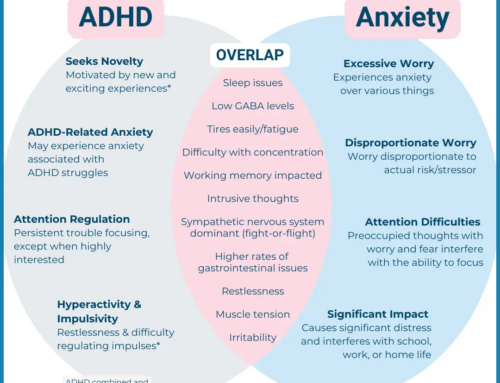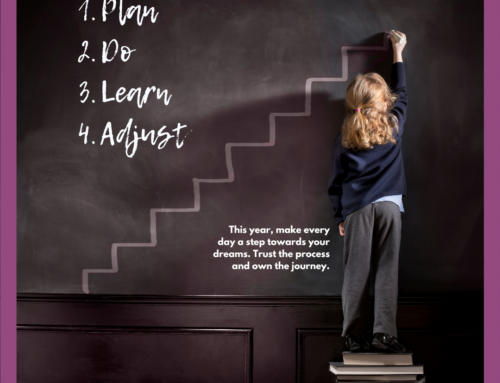Struggle to manage emotions as a result of ADHD symptoms? You are not alone.
ADHD is one of the most commonly diagnosed-and widely misunderstood-neurological conditions in the world today, affecting nearly 10% of kids and a rising number of adults. In fact, the number of adults diagnosed with ADHD is currently rising 4x as fast as children.
ADHD + Emotions: Certain circumstances make individuals with ADHD or Executive Function Weakness feel out of control and overwhelmed, causing them to run away from problems or have emotional outbursts or breakdowns.
This appears differently in each stage of life, but the brain-based reasons “why” are the same.
Why Is It Hard to Manage Emotions with ADHD?
Researchers estimate that about 70 percent of adults with ADHD experience difficulties with emotional regulation, some of whom don’t have any co-occurring conditions that would explain their heightened emotions.
Children also feel the impact. Billy Roberts, a therapist and founder of Focused Mind ADHD Counseling, says, “ADHD and [emotional] dysregulation are deeply connected. This is because the wiring of the ADHD brain makes emotional regulation a challenge.”
There are several reasons why.
ADHD can result in memory impairments that allow stronger than anticipated emotional reactions. As a result, the brain is flooded with one intense emotion like anger, sadness, or frustration.
When emotions rule in this way, individuals have a lower tolerance for frustration and are more reactive. The brain locks onto the intense wave of emotion and crowds out other functions that would typically modulate the response.
Humans with ADHD may suffer from anger management issues, emotional outbursts, or overwhelming anxiety or sadness. This may be in reaction to outside factors. Sometimes an individual’s environment causes outside stress. Coping with sensitivities to sound, lights, or other physical distractions can take a toll on an individual’s ability to regulate emotion. For example, a student may melt-down shortly after coming home from school because their favorite snack is not available.
Even if an individual does not suffer directly from the impact of the physical environment, (noise, lights, distractions, certain environments such as school, work, social settings) they may find it difficult to tolerate others’ emotions. If an individual is sensitive to tone of voice or feeling others’ emotions, they may not have practice in regulating their own emotions in relation to the outside stimuli. This can cause an overreaction to feedback, correction, or an emotionally charged statement from someone else.
Living in a state of frustration or negativity long-term can result in chronic feelings of sadness or low self-esteem and energy. Typically, emotions help motivate us into action, whether to engage in an action or avoid it. However, when one is fully engulfed in only one feeling, one is less likely to know how to react.
What are some Tools to Manage Emotions?
Use these 5 Tips to build an Emotional Regulation Skillset:
- Identify Triggering Situations
If you often feel angry, sad, or another powerful emotion in a specific situation, work to start avoiding that situation, if possible. If your job or relationship is triggering, it can be difficult to avoid. In this situation, you can set boundaries around your job that will help you transition to your settings at home and in your personal life in a more regulated state. You might try meditation, journaling, working out, or therapy between work and home.
- Express Yourself
Rather than defaulting to an emotional response, such as running away from a problem or having an outburst, how can you express yourself in a different way? Your emotions are a signal that you need or want something. If you can express yourself calmly, you can offset the emotional response.
Your outburst or avoidance could be a coping habit because you haven’t learned how to clearly express your needs, especially in times of stress or when you feel like you might hurt someone’s feelings or have a negative reaction. You may also have trouble expressing your needs when you feel you cannot control a situation. Examples of these situations may be felt by teens and parents in patterns of conflict or avoiding conflict.
Sit down in quiet moments and write a letter to help you explain your feelings. Monitoring your emotions can help you identify what you need and make a plan to express it.
- Set and Maintain Your Boundaries To Manage Emotions
If your emotional response is caused by a person or situation who/that continually pushes your boundaries, it’s essential to learn how to put those boundaries up and then maintain them. Your boundaries are crucial to your comfort, so don’t sacrifice them for someone else’s benefit. When you’re able to preserve your comfort level, you’ll feel more respected and less likely to have an emotional reaction.
For example, when you set non-negotiables in parenting, you will be able to calmly restate the non-negotiable with a vision of why this is important to your role as a parent.
If you are a teen setting boundaries, consider asking a trusted friend or adult to help you make a plan ahead of time. A Core Values exercise can be helpful in looking deeper into the values that are important to you or trigger your emotional response when they are challenged.
- Plan a Routine
Living with ADHD can feel stressful because you’re often overwhelmed by external sources. If you find that you’re always running late, getting angry at slow drivers, forgetting appointments, or forgetting to turn in assignments, you may benefit greatly from creating a strict routine.
When you’re able to plan and leave a little early in anticipation of these frustrations, you’ll have more time to avoid stress and anger.
- Exercise To Manage Emotions
When you exercise every day, your stress levels will reduce, and you’ll be able to tolerate daily annoyances more easily. Your emotional responses will be less intense, and you’ll be able to handle your emotional reactions more readily.
Even a simple walk or climbing a few flights of stairs can direct your emotional energy elsewhere so you can relax. Spending time in nature can be especially helpful.
Notice which of these 5 strategies are most helpful and put them into place in many areas of your life!
Where to Start
If you’re struggling with emotional issues, daily tasks can be more difficult. You may start to anticipate your reaction to specific situations, leading to an even bigger response.
- Start by taking the time to learn what situations make you feel the most emotional and see if you can pinpoint why you feel that way. Pick one of those situations and mentally think about how you felt before your emotional response, how you felt during it, and how you felt afterward. See if you can identify what exactly triggered your reaction.
- Once you start picking these moments that make you emotional, you’ll be able to apply some of the tips to help you manage your reactions. The more prepared you are for these outbursts ahead of time, the more you’ll be able to control your response.
The acronym SOUND can be helpful in guiding you through noticing and making a plan for reactions you want to change.

When you can avoid the impulse to react and stop, instead, to observe what is happening that triggered the reaction, take time to understand the root of the trigger and name the circumstances that are affecting you. Then you can decide how you want to react differently in the future and make a plan to practice it.
Are you interested in learning more about other Executive Function Skills and how to develop them? Find out more about our Families Who Lead, Introduction to Executive Function, and Do What Matters Most Courses!







